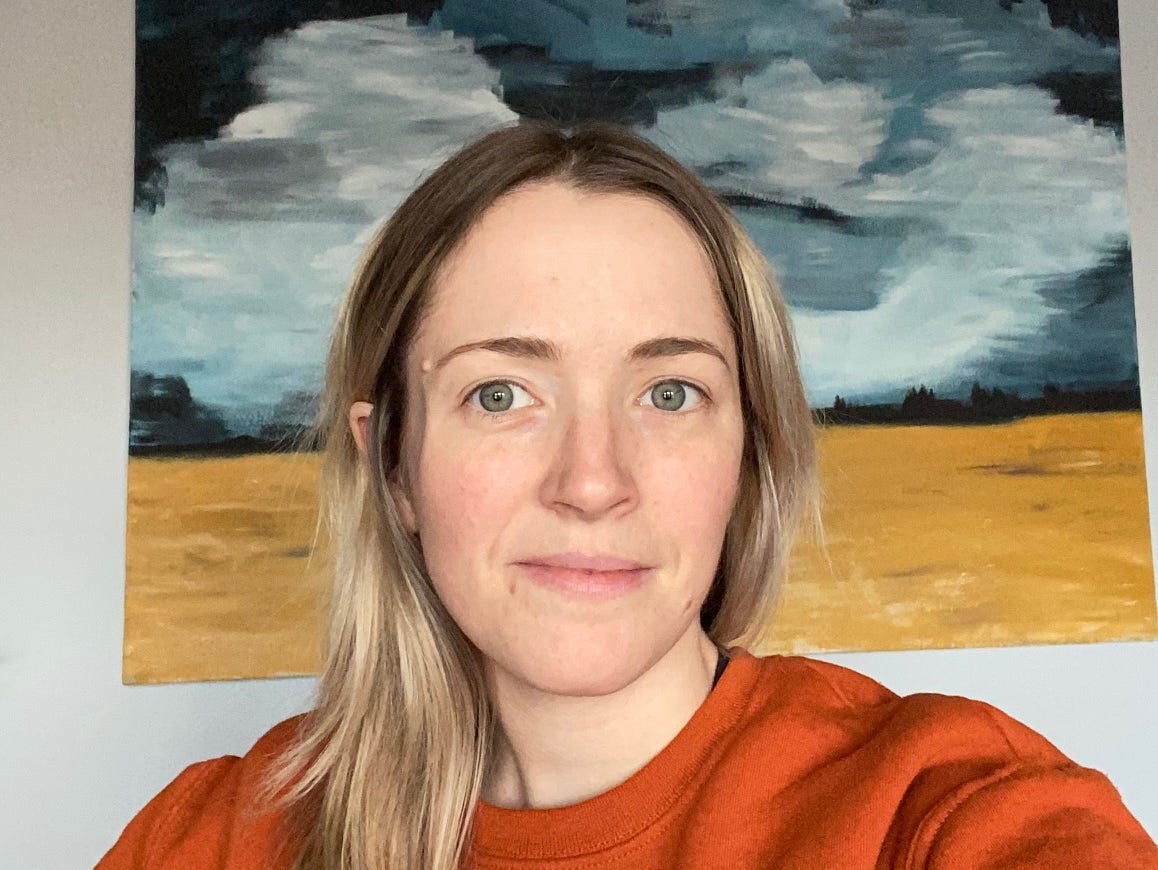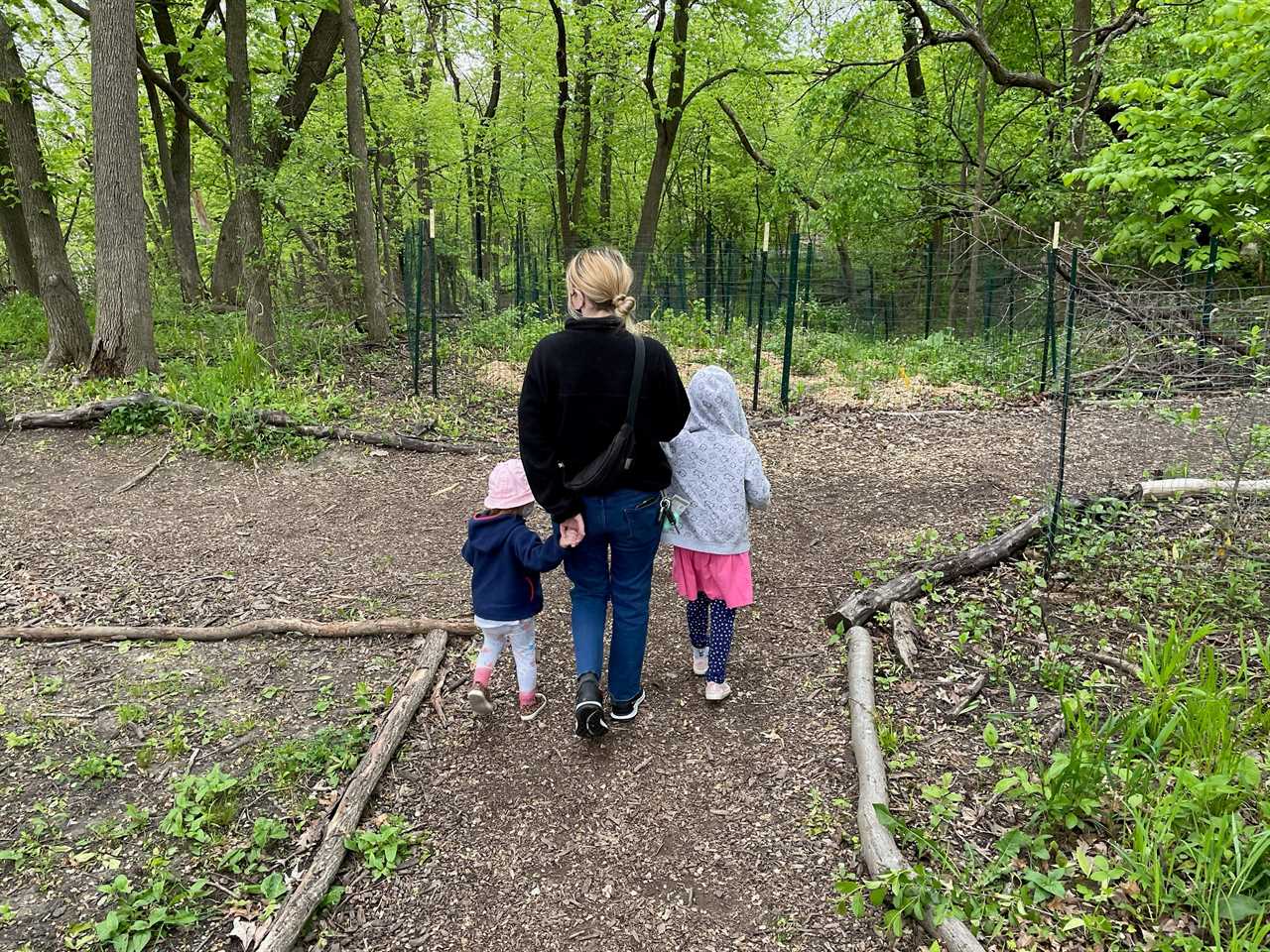
Laura Danger.Laura Danger
-
Laura Danger (33), a Chicago-based teacher and mother of two, has had to leave the workforce.
-
Danger, like many parents, was responsible for child care during the pandemic.
-
Danger stated that domestic labor should be valued with protections such as paid leave.
Laura Danger was heartbroken to have to leave the workforce.
"I am a great educator. Insider spoke with Chicago's special educator and community advocate, who said that she loves what she does.
Danger, 33 years old, has been a stay-at home parent for the past three months. Because of the stress in her life, she was on short-term disability leave. However, that time has just expired. Now, she's on unpaid leave.
As many parents during the pandemic, managing child-care has been difficult. Danger continues to face unpredictable child-care problems and has felt the pinch of not having federal paid sick leave. Danger has even found an audience via TikTok. She highlights the unpaid domestic work that women are forced into and has received more than 7,000,000 likes.
Danger stated, "I feel like a lot my worth has been tied my ability to provide financial support and to achieve goals and feel fulfilled through my career." This is contrary to being a parent because "being available for them is not valued."
"They received child care once a day for eight weeks, and we paid all the costs."
Danger was a mother to a 9-month old and a 3-year old in full-time day care when the pandemic struck. Her husband and she needed to create a new pandemic schedule.
He would go to work later, so that she could remotely teach classes. She would either work with them or teach while they napped. Danger paid child care for the summer and fall. However, her children's COVID exposures at daycare kept them home most of the time.
Danger began to teach in-person in February and hired a nanny. The hours of the nanny were cut from the time her husband left to work to the time Danger got off to work.
"I lost all access and personal time. Danger stated that it was only a matter of seconds.
Everyone returned to learning in person in September. My children were both sick within five days.
Danger and her husband split sick days.
"Three to four weeks into our journey, we had already experienced so much illness and exposure that I was unable to work. I was also extremely stressed out, not sleeping, and way behind in my work schedule. Danger stated that she had lost 11 pounds in just four weeks.
Danger was eventually eligible for short-term disability. This just expired.

Laura Danger and her kids.Laura Danger
"Domestic labor means labor"
Danger claimed that she was not paid for the birth of her first baby; while she was on her second maternity break, she was subject to a budget-cut-related layoff.
The now-stalled Build back Better Act has a provision that includes federal paid sick and family leaves. The US is the only member of the Organization for Economic Cooperation and Development that has no paid mandatory leave.
Danger stated that domestic labor is still labor, and added that it should be valued socially as well as financially with protections such paid sick leave and family leave. It's almost as if we pretend that this work doesn’t matter.
This is a topic that she has become a vocal advocate for on TikTok. Her videos about domestic work and unpaid leave have been viewed more than 7,000,000 times. She discusses how the capitalist patriarchy has "pushed women out of places of power by not paying and not valuing labor."
Danger has a new sense for purpose thanks to the feedback she received from her TikTok videos.
Danger stated, "It feels so great because it feels as if I put my finger onto something that I couldn’t verbalize before." "I feel like I can at least push for a little social change by accessing other women who are trapped and are escaping via their phones, and I get that little voice to say, 'No, You Matter, You Matter So Much!'
Her husband also suffered from the lack of protections or paid leave mandates. He had to have a vasectomy. She said, "I cannot put myself through that ever again." It was "devastating" leaving the workforce.
"I won't have the ability to return to my school. My school is in my neighbourhood, and these children I see at the grocery shop and on my street, I won't be able go back to them. It's very devastating."
 Make Money OnlineForexInvestingBitcoinVideosFinancePrivacy PolicyTerms And Conditions
Make Money OnlineForexInvestingBitcoinVideosFinancePrivacy PolicyTerms And Conditions
